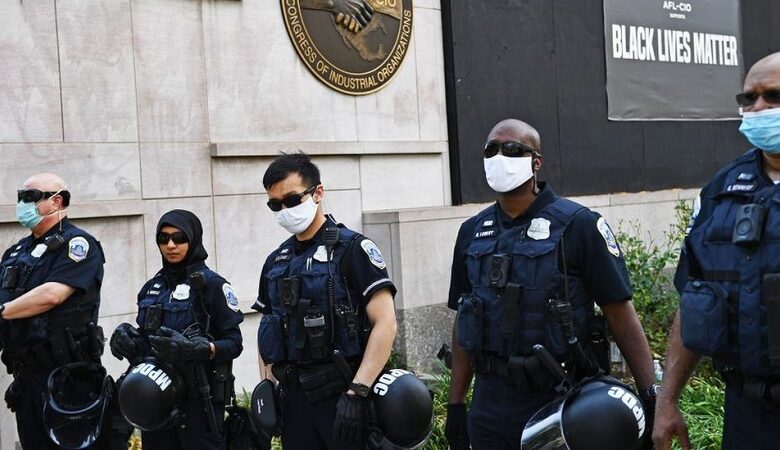
News Mania desk/Agnibeena Ghosh/29th April 2024
A survey conducted by the Police Executive Research Forum (PERF) unveils a significant trend in law enforcement agencies throughout the United States. Following the tumultuous aftermath of the Covid-19 pandemic and the tragic killing of George Floyd in 2020, police departments are now witnessing a resurgence in their officer numbers. In 2023, more sworn officers were recruited than in any of the preceding four years, while fewer officers resigned or retired, as per law enforcement agencies’ responses to the PERF survey.
The murder of George Floyd on May 25, 2020, in Minneapolis ignited widespread protests against police brutality and heightened scrutiny of law enforcement practices across the nation. Consequently, many officers left their positions, prompting departments to redistribute resources. Personnel were redirected from tasks such as investigations and addressing quality of life issues to tackle the surge in crime rates. This reallocation led to slower response times and limited emergency services in some areas due to staff shortages, according to statements from police officials.
Chuck Wexler, the executive director of PERF, characterized the past four years as particularly challenging for American policing. He expressed optimism, noting that the survey indicates a turning point. However, he acknowledged that individual departments are progressing at varying rates, with many still grappling with recruitment and retention challenges. Despite recent improvements, Wexler cautioned that the profession still faces obstacles.
The survey findings revealed that while small and medium-sized departments had increased their sworn officer numbers since January 2020, larger departments remained over 5% below their staffing levels from that time. This disparity persists despite a year-over-year increase in officer recruitment from 2022 to 2023, according to data collected from various unions and police departments by the Associated Press.
Smaller departments with fewer than 50 officers continue to struggle with a higher rate of resignations and retirements. Wexler noted that the survey primarily focused on numerical data, making it difficult to ascertain whether departing officers are transitioning to larger departments or leaving the profession altogether. Additionally, he highlighted the underrepresentation of smaller departments, which comprise 80% of agencies nationwide, in the survey responses received by PERF.
To address recruitment challenges, several larger police departments have raised officer salaries and introduced incentives like signing bonuses to attract experienced personnel willing to transfer. However, despite offering competitive compensation, some of the highest-paying large departments are still encountering difficulties in recruiting new hires. Moreover, a dozen smaller departments have dissolved, necessitating reliance on state or county assistance for policing.
Wexler emphasized that factors beyond financial incentives influence officers’ decisions to join or remain in a department. He highlighted the importance of perceived job support and organizational culture. Despite substantial salaries offered by some West Coast departments, significant recruitment challenges persist.
Maria “Maki” Haberfeld, chair of the Department of Law, Police Science, and Criminal Justice Administration at John Jay College of Criminal Justice, criticized the emphasis placed on officer numbers by some departments. She expressed concerns that lowering education requirements and other standards to boost recruitment may compromise the quality of policing. Haberfeld emphasized that policing requires a diverse skill set and higher education, emphasizing emotional intelligence and the ability to make critical decisions without resorting to deadly force.
Haberfeld warned that any staffing gains achieved through incentives could be short-lived, particularly in light of recent incidents where officers, some clad in riot gear, were observed dispersing protests against the Israel-Hamas conflict at universities nationwide. She emphasized the fragile nature of public perception towards policing, underscoring the significant time required to advance the profession contrasted with the swiftness with which public attitudes can deteriorate.
According to PERF’s survey, resignations decreased by over 20% overall, dropping from nearly 6,500 in 2022 to fewer than 5,100 in 2023. However, they remain higher than pre-pandemic levels in 2020 when slightly more than 4,000 officers resigned across all participating departments.






